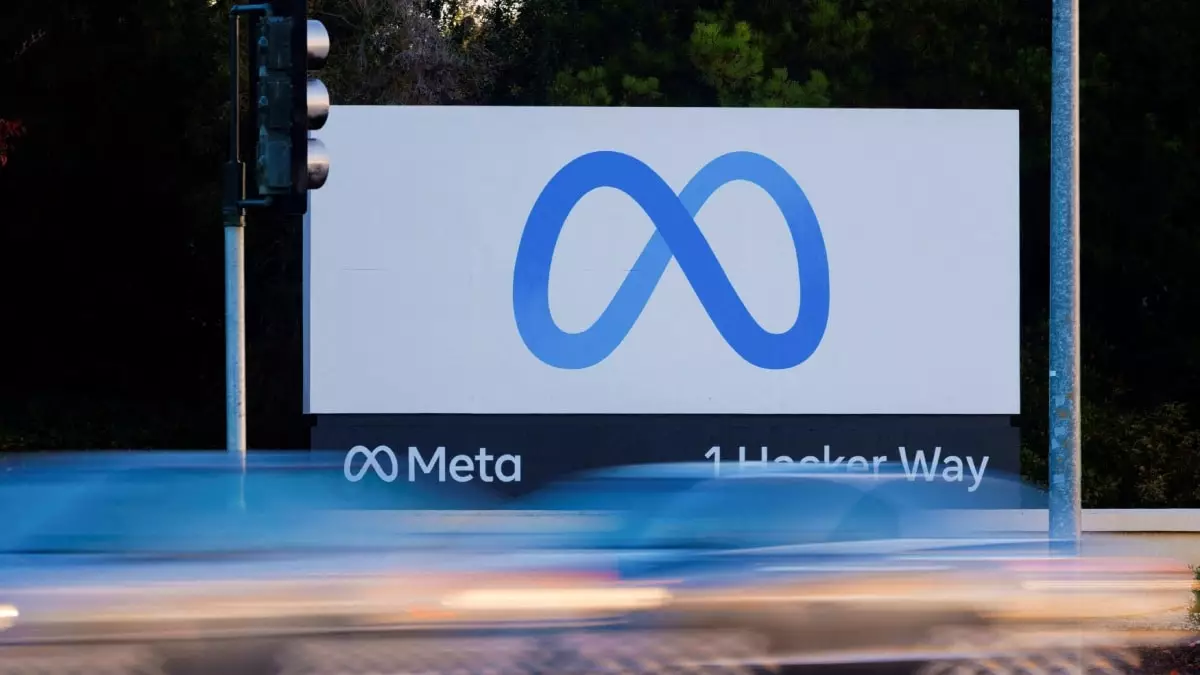In a landmark ruling that underscores the increasing scrutiny on major tech corporations, Meta Platforms Inc. has been imposed a hefty fine of €798 million (approximately $841 million or Rs. 7,100 crores) by European Union regulators. This marks a significant moment in the ongoing battle between big tech companies and regulatory bodies, particularly concerning antitrust violations. The penalty is the first of its kind for Meta in the EU, emphasizing the growing concerns about how large digital platforms wield their market power.
The European Commission has accused Meta of tying its Facebook Marketplace, an online classified ads service, to its expansive social network, Facebook. The EU’s antitrust chief, Margrethe Vestager, articulated that this move not only benefitted Meta’s Marketplace by leveraging the vast user base of Facebook but also imposed unjust trading conditions on competing second-hand goods platforms. The crux of the accusation revolves around the idea that Meta utilized its dominance in social media to gain an unfair advantage in the online classified ads market, stifling competition and innovation among rivals. This practice not only attracted scrutiny but also ignited a wider discussion about the ethics of monopolistic behaviors in the tech industry.
Meta’s situation is not isolated; it reflects a broader trend where global regulatory bodies are intensifying their investigations into the practices of technology giants. Following Meta’s penalty, other tech firms, notably Amazon, have faced similar scrutiny. Amazon was able to circumvent EU fines in 2022, after promising to refrain from using proprietary sales data from independent sellers for its products. This suggests a possible leniency that contrasts with the stringent measures taken against Meta, raising questions about consistency in regulatory enforcement.
Simultaneously, the backdrop of the European technological landscape reveals heightened tensions between regional regulators and dominant US tech firms. Vestager, who has been a formidable figure in enforcing antitrust laws, is soon stepping down, which could signal a transition in the EU’s approach towards handling such violations. Her departure may lead to uncertainty regarding the future of such stringent regulations, hinging on the political will of her successor.
In response to the EU’s ruling, Meta has made it clear that it intends to appeal the decision in EU courts. The company argues that the fine disregards the realities of a competitive digital market in Europe, suggesting that it inadvertently favors larger incumbent companies rather than fostering genuine competition. This stance exemplifies the ongoing tension between regulatory bodies and tech giants, raising the question of whether the punishment fits the crime or merely serves as a deterrent for other companies.
As Meta braces for a potential protracted legal battle, it finds itself in a difficult position, not only due to fines and ongoing lawsuits in the US but also because of a rapidly evolving competition landscape. The rise of alternative social media platforms, such as Bluesky, fueled by political discourse and changing public sentiments, introduces fresh competitive pressures on Meta’s core products.
Despite the recent penalties and competitive pressures, Meta reported an impressive sales figure of $40.6 billion for the quarter ending September 30—an increase of 19% from the previous year. This performance might provide Meta with some buffer against the financial repercussions of regulatory fines. However, the challenge remains in balancing investments in emergent technologies such as artificial intelligence and virtual reality with the necessity to sustain growth in its primary digital advertising revenue.
Moreover, with the introduction of the European Union’s Digital Markets Act, which establishes stricter regulations on digital monopolies, Meta must adjust its strategies to remain compliant. The act aims to ensure a more competitive digital marketplace and curtail the monopolistic practices that led to the current landscape of fines and scrutiny.
As Meta Platforms Inc. navigates this intricate web of regulatory challenges, the implications of its actions extend beyond its corporate interests. They reflect the growing imperative for governments and regulatory bodies to critically assess and potentially restructure the digital marketplace to ensure fair competition, protect consumer rights, and foster innovation.
The fate of Meta and its tech counterparts now hinges on a balanced approach that does not hinder technological advancement while addressing the monopolistic tendencies that have taken root in the industry. The EU’s decision to penalize Meta may serve as a precedent for future regulatory actions against other tech giants and highlights the critical need for an evolved regulatory framework that can keep pace with the rapid developments within the digital landscape.


Leave a Reply